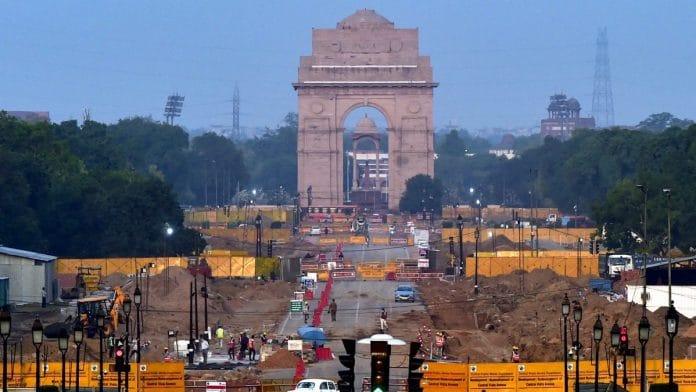
Thank you dear subscribers, we are overwhelmed with your response.
Your Turn is a unique section from ThePrint featuring points of view from its subscribers. If you are a subscriber, have a point of view, please send it to us. If not, do subscribe here: https://theprint.in/subscribe/
While having an engaging chat with one of my friends, I was supportive and appreciative of the works done by the political party he supported. He was puzzled. In this case, I happened to be the person who supported the party he hated the most.
Now, why does he have to be puzzled?
It has got to do with two things. Cognitive Bias and Social Media. A Cognitive bias is a systematic pattern of deviation from norm or rationality in judgment. Individuals create their own “subjective reality” from their perception of the input. An individual’s construction of reality, not the objective input, dictates their behaviour in the world. Thus cognitive biases may sometimes lead to inaccurate judgment.
When I discuss politics with my friends, they appear to be very sure of what they believe and which party to trust. A simple scepticism about themselves would not hurt them, as it allows for further introspection. The famous philosopher George Santayana once famously said, “Scepticism is the Chastity of Intellect”.
Many of us do not exert enough energy to understand what is happening around us. I do not blame us for this because we do not have the time for it in this fast-moving world. The opposition to Central Vista Project is one such example.
The extraordinary expense of approximately 20000 crore rupees is not only for Parliament and Prime Minister’s residence but also for the administrative complexes, which contains the offices of several Joint secretaries and undersecretaries of various departments. The current complexes are more than fifty years old and are in serious need of restoration.
The Delimitation Commission has announced that there will no change in the number of seats in parliament until 2026. Currently, the number of constituencies for each state is determined based on the 1971 census. It is also a legitimate concern that the representation of the people at the Parliament will not be effective at the current capacity. The Current Parliament building does not have enough space to accommodate more Members.
Be that as it may, the above three paragraphs are not meant to convince you, dear reader, to support the government’s initiative and I am aware of equally good arguments that propose to stop the construction of the Central Vista until the pandemic is over.
My intention, then, is to make you more sceptical about your belief that the Central Vista project, “no matter what”, must be stopped. I wish to remove your blind confidence or belief over something, which you have acquired, without hearing the other side of the argument.
“India is starving for Oxygen but Modi builds a palace for himself” – Imagine if one of your friends shares an under-researched, half baked opinionated post like this on his Facebook profile or in a Whatsapp Group.
Given the dire circumstances, we tend to react angrily towards this post. But we have discussed earlier that this is not a binary, Yes or No problem. It is also natural to have people around you, who subscribe to your beliefs and have similar ideologies. So, your opinion of the problem is nothing but the half baked opinion of that post and it also becomes a popular opinion, as there is no one to challenge that opinion. This phenomenon is called as “Echo Chamber”
In sociology, an In-group is a social group to which a person psychologically identifies as being a member. Social media becomes the fertile ground to breed uninformed opinions. These opinions ricochet across the “Echo Chambers”. These Echo chambers continue to educate themselves with these half baked ideas and then convert themselves into In-Groups. The problem with an In-Group is that they are open to including someone who sticks to their worldviews and ideologies but rejects a person as an Out-Group, who does not conform to their belief system. In this way, people have become less tolerant of other ideas from other groups.
It is essential then to periodically expose ourselves to opposing ideas. The first obvious benefit of engaging with someone who believes in opposing ideology is that the levels of tolerance will increase. We will be exposed to the logical loopholes of our opinions by friends on the opposite spectrum.
Another way of reducing cognitive bias is thinking critically. Edward Deming, an American statistician, once famously said, “In God we trust. All others must bring data.”
Hence, it is important not to consume politics from Social Media but from respected publishing houses. Though Journalism in India is not perfect, at least some of them spend a lot of time in fact-checking and provide us with filtered and unbiased content. In this way, we can have a better understanding of the political system around us and widen our perspectives. We can also build a vibrant and tolerant society.
Also read: SubscriberWrites: ‘Democracy 2.0’ — A new definition of democracy is needed in changing times
These pieces are being published as they have been received – they have not been edited/fact-checked by ThePrint.


COMMENTS